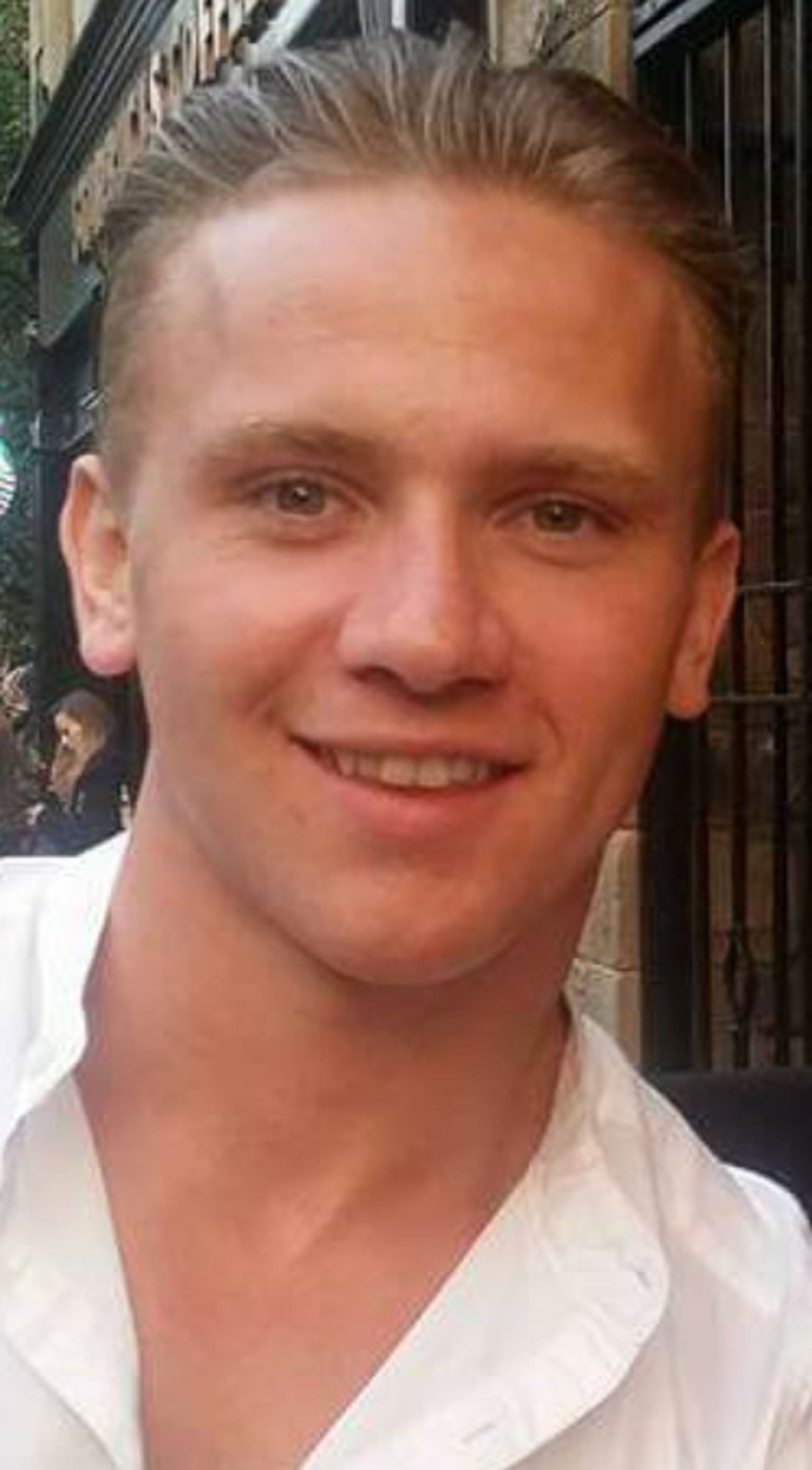Airman Corrie McKeague slept under bin bags on night out, inquest told
The 23-year-old disappeared in the early hours of September 24 2016 in Bury St Edmunds, Suffolk.

Your support helps us to tell the story
From reproductive rights to climate change to Big Tech, The Independent is on the ground when the story is developing. Whether it's investigating the financials of Elon Musk's pro-Trump PAC or producing our latest documentary, 'The A Word', which shines a light on the American women fighting for reproductive rights, we know how important it is to parse out the facts from the messaging.
At such a critical moment in US history, we need reporters on the ground. Your donation allows us to keep sending journalists to speak to both sides of the story.
The Independent is trusted by Americans across the entire political spectrum. And unlike many other quality news outlets, we choose not to lock Americans out of our reporting and analysis with paywalls. We believe quality journalism should be available to everyone, paid for by those who can afford it.
Your support makes all the difference.RAF gunner Corrie McKeague, who vanished on a night out in 2016, had slept under bin bags on a previous night out using them “almost like a blanket”, an inquest heard.
The hearing was told the airman was a “nightmare on the drink” and had downed a bottle of red wine in 17 seconds on one occasion.
Mr McKeague, from Dunfermline, Fife, was 23 when he disappeared in the early hours of September 24 2016 after a night out in Bury St Edmunds, Suffolk.
Police believe that the serviceman, who was stationed at RAF Honington, climbed into a bin which was then tipped into a waste lorry.
Mr McKeague’s best friend Paul Robb, who served with him in the RAF, told an inquest in Ipswich that Mr McKeague said he slept under bin bags following a night out in Lichfield, Staffordshire, in 2014.
He said Mr McKeague had been out drinking when they were there on a medic course.
“He told me he slept under some bin bags,” he said.
“I can’t remember if he described them being full of rubbish, outside a coffee shop or something like that.
“Round the back where the bin area was.
“He described using them almost like a blanket to stay warm.”
He said that on a previous night out at a Nandos restaurant Mr McKeague “downed a whole bottle of red wine in 17 seconds”, adding: “He had a capability of doing things like that.”
In his witness statement, Mr Robb detailed how Mr McKeague had previously passed out through drink and awoken the following morning in the toilets of a McDonald’s restaurant in Bury St Edmunds, and on a separate occasion fell asleep on a bench outside a Tesco store in the town.
He said that on a stag do in Liverpool in August 2016 Mr McKeague climbed up a drainpipe and through a window of the accommodation where he was staying, getting into a room that was not his and falling asleep there.
In his witness statement, Mr Robb said: “Corrie had always been extreme with his drinking and there were no half measures with Corrie.”
He described Mr McKeague’s mental state as “up and down”, adding: “He had periods of highs and periods of lows.”
He said Mr McKeague had previously received counselling through a mental health team that assists the RAF, and had previously been prescribed antidepressants.
Mr McKeague’s former line manager Sergeant Ross Stevenson said: “He’s a friendly lad, cheeky I would say, but he was a good laugh, he was capable, he just needed channelling, I would say.”
In his witness statement he said that Mr McKeague was a “nightmare on the drink” and “he liked to be steaming”.
Sgt Stevenson said that on a previous occasion he had seen Mr McKeague walking along a road, one mile from the airbase, at around 10am and stopped his vehicle to give him a lift.
“Corrie was walking along the verge of the road and still wearing the clothes from the night before,” Sgt Stevenson said, adding: “Presumably he had been on a night out.”
Sgt Stevenson said that Mr McKeague had previously asked for help with his finances, and asked for his card to be kept in a locked box for a month.
“He came to us asking for help as he had no money for food or anything,” he said.
He said the base arranged for meal tickets for him to ensure he was fed and discussed how to pay off money he owed.
William Hook, the doorman at Flex nightclub who asked Mr McKeague to leave in the early hours of Saturday September 24, said that Mr McKeague arrived at the club between 11pm and midnight on the Friday.
He said: “There was nothing out of the ordinary to keep a special eye on him.”
Mr Hook said that when he saw Mr McKeague later, around 1am, “he struggled to walk without holding onto anything around him – that was the point I clocked him, I suppose”.
He continued: “I said: ‘I think you’ve had enough mate, shall we go out the front?’”
The doorman said Mr McKeague co-operated and left the venue, and he described it as an “easy ejection”.
Mr Hook said “there was no worry about him”.
“He was a popular lad around the town, he knew a lot of people who were out, he would go round groups of people speaking to groups of people and saying hello to staff,” he said.
The inquest, due to last for up to four weeks, continues.